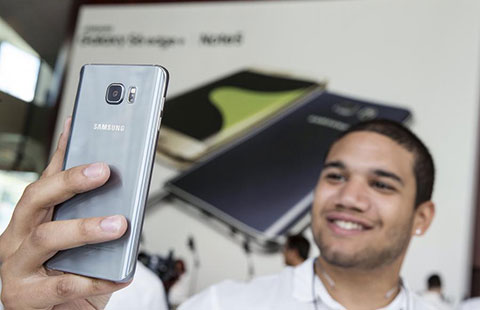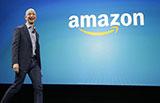'Made in China' gains acceptance
By Ariel Tung in New York (China Daily) Updated: 2012-06-16 10:05Americans viewing Chinese brands more positively: survey
"Made in China" is a phrase Americans know mainly as an indicator of pervasive offshore manufacturing. But increasingly it's being attached to products originating in China from domestic companies - and gaining acceptance in the West.
A recent survey by Li-Ning, a leading Chinese athletic footwear and apparel company, found that a growing number of consumers in the United States are willing to buy products of Chinese origin.
Li-Ning Co, which was founded by 1984 Olympic gold medal-winning gymnast Li Ning, set out in 2011 to launch a sportswear line in the US. The Beijing-based company partnered with Acquity Group, an e-commerce and marketing consultant, to help expand its US consumer base.
They came up with Digital Li-Ning, a joint venture with a $10 million investment that entailed the launch of an online retail site, www.Li-Ning.com, and development of a new apparel collection for the US market. Digital Li-Ning is based in Chicago.
According to the study, there has been a significant shift in US consumers' perception of Chinese brands over the past five years. About 62 percent of Americans said they were more likely to purchase products from Chinese companies today than they were in 2007.
Two consumer groups, those aged 18 to 25 years old and those with annual household incomes of over $225,000, were most likely to regard Chinese brands favorably.
"The openness among the young and upper-income groups is a key part of our strategy, as it provides an opportunity for us to tap into these markets and tailor our products to fit their needs," said Craig Heisner, Li-Ning's vice-president of sales, marketing and merchandising.
More than half of the survey respondents, according to Li-Ning, said they believe the quality of Chinese brands will measure up to US-branded goods in the next five years.
Electronics had the highest favorability rating among categories of Chinese products, with appliance manufacturer Haier and PC maker Lenovo the best-known companies.
Li-Ning was particularly encouraged by young people's positive perception of Chinese brands. It is "a positive indicator that our brand strategy is right on target", Heisner said.
"We know they are more open to our digital-only approach and prefer to interact with companies via digital channels," he said. "The same opportunity lies with the more affluent market, as the survey results indicate they are more familiar with Chinese culture and products, making them more open to what Li-Ning has to offer."
- China's FX policy aims at freer currency: Australian economist
- China's non-bank lending for real estate grows
- Agricultural Bank of China expands farming finance service
- Almost ten thousand new cars ruined in Tianjin blasts
- Yuan stabilizes after central bank reassures markets
- 9 major accidents caused by hazardous materials
- Equity offering resumes in Chinese stock market
- China outbound direct investment jumps in seven months
















